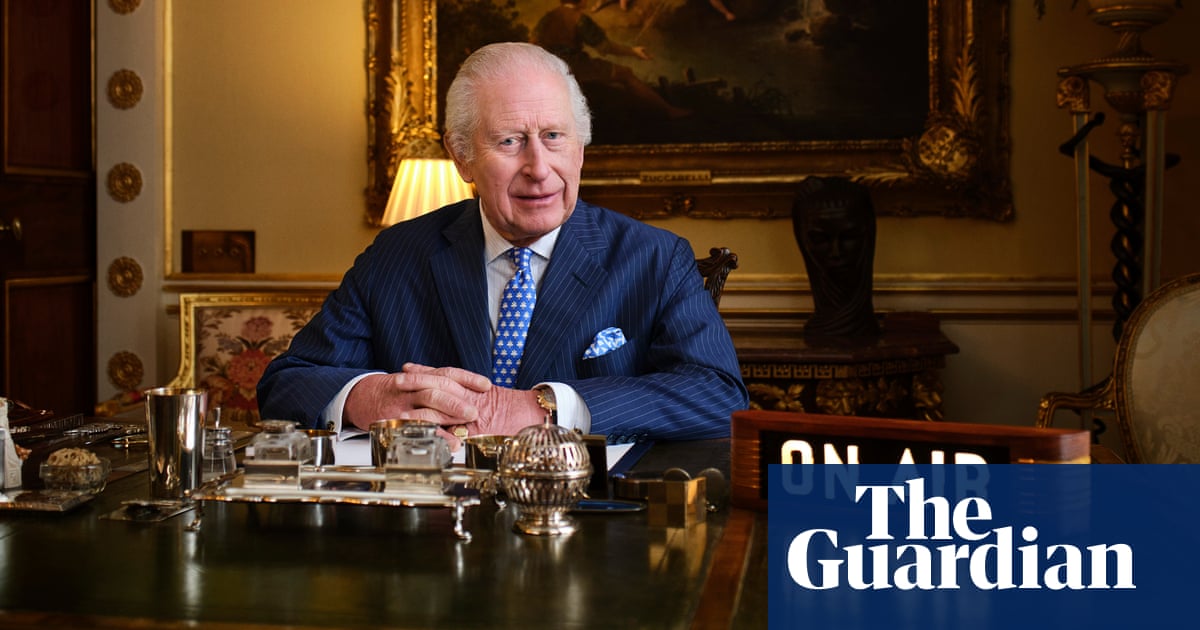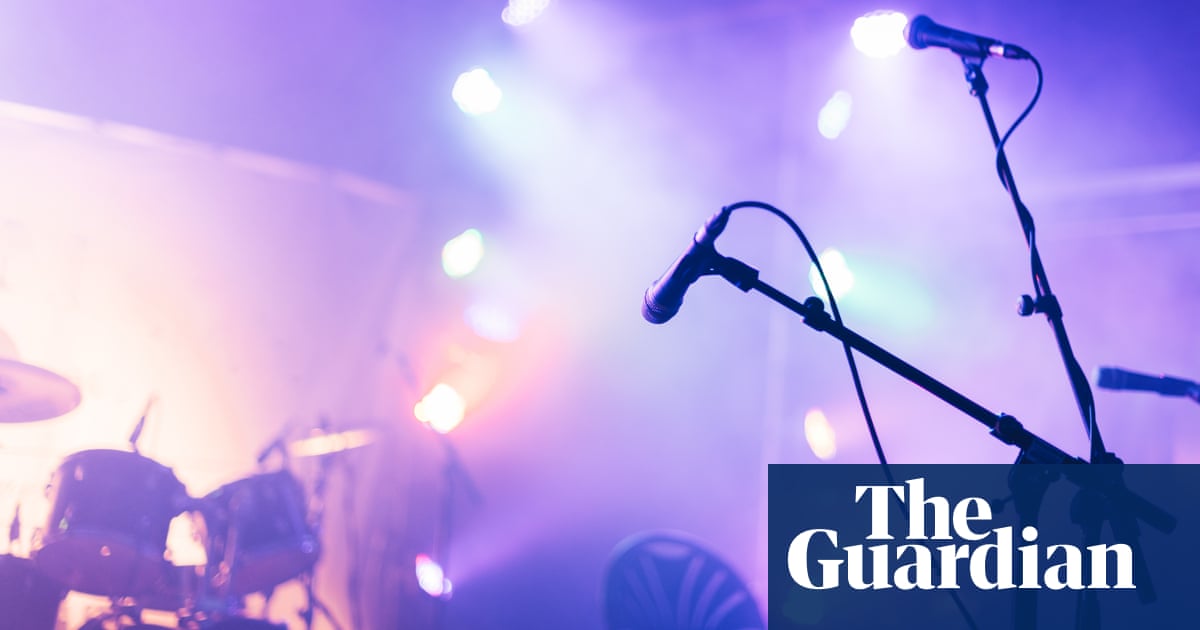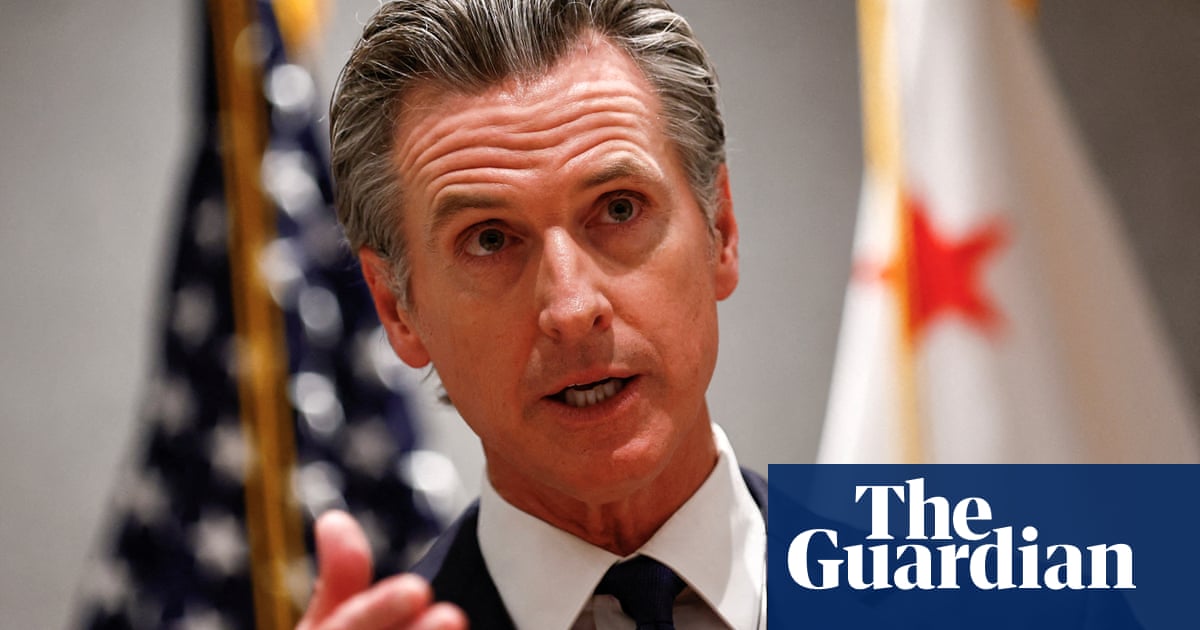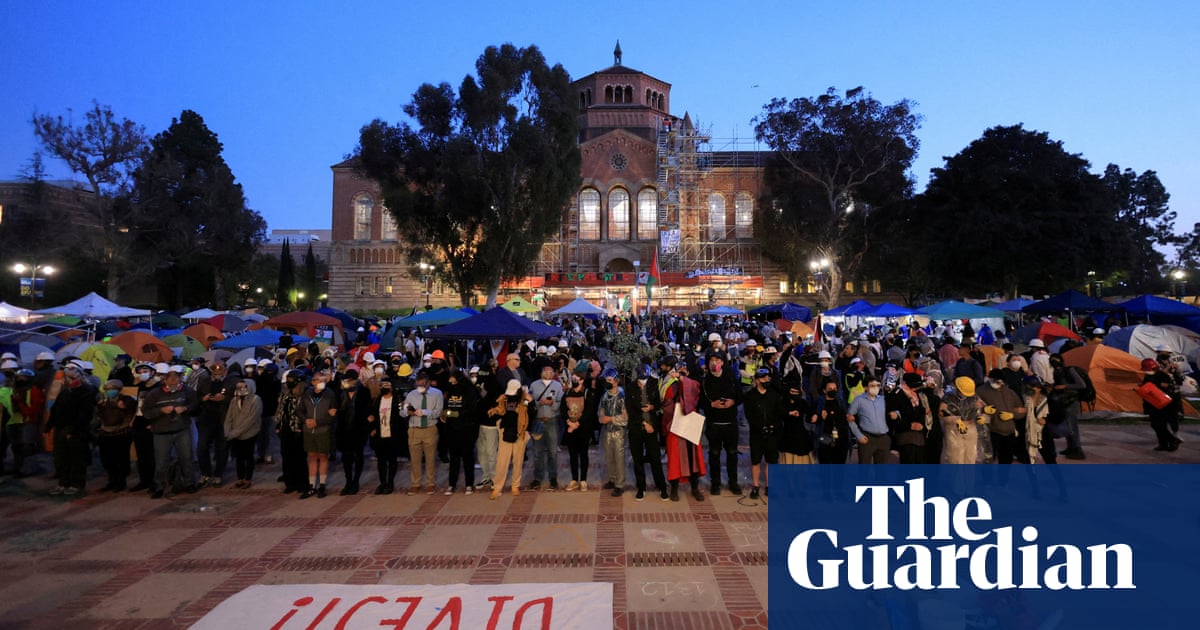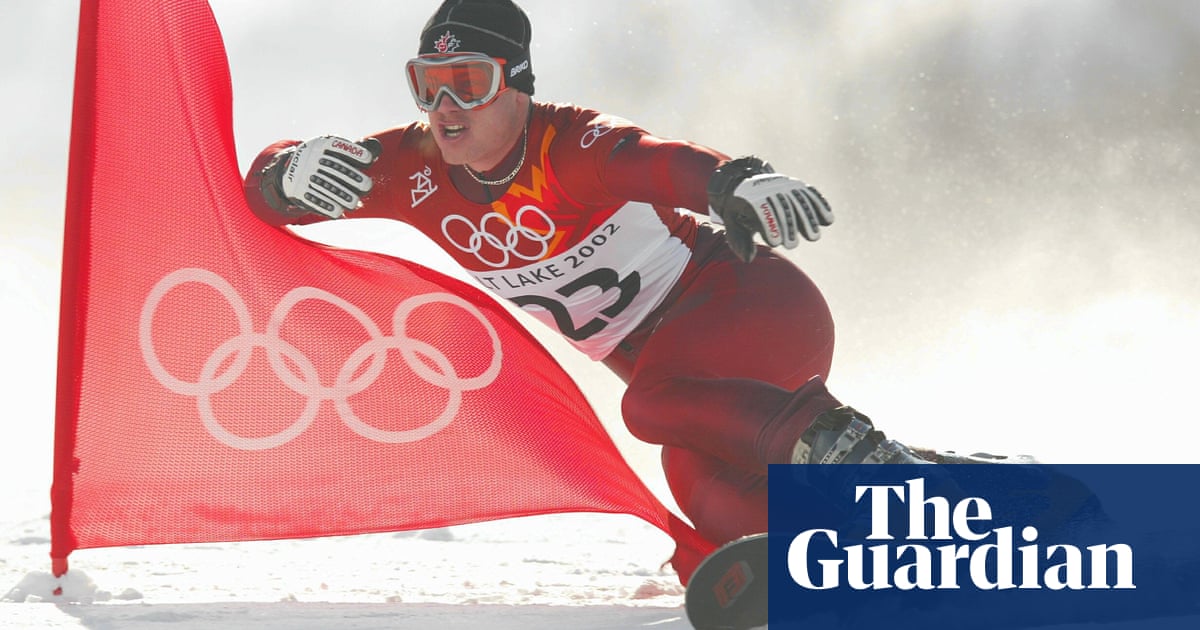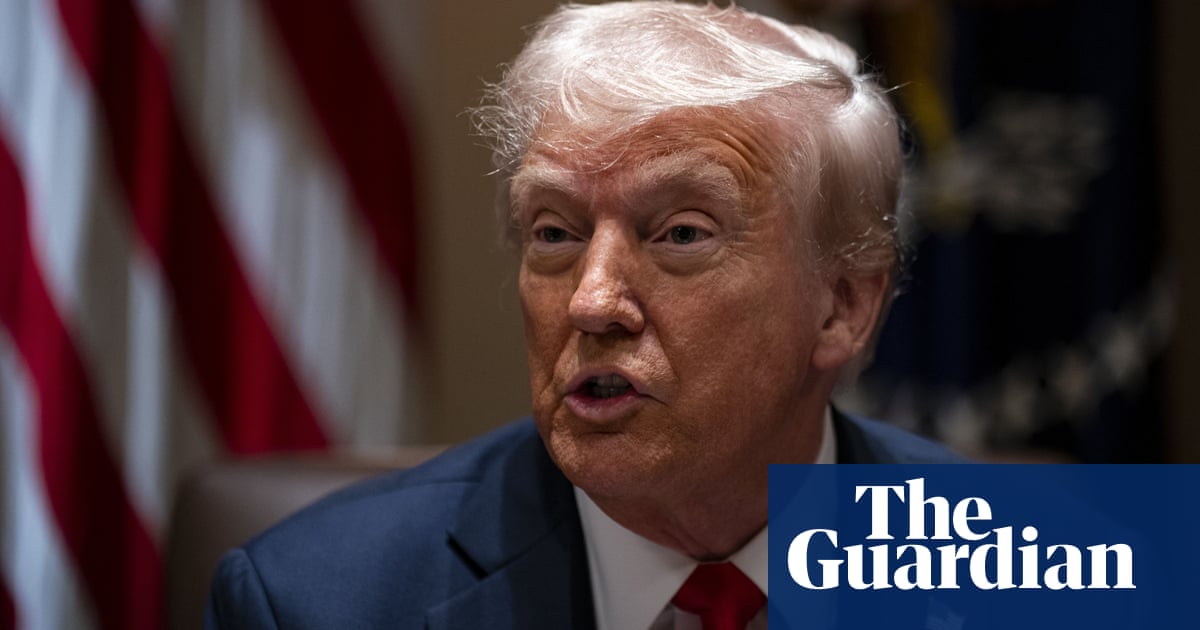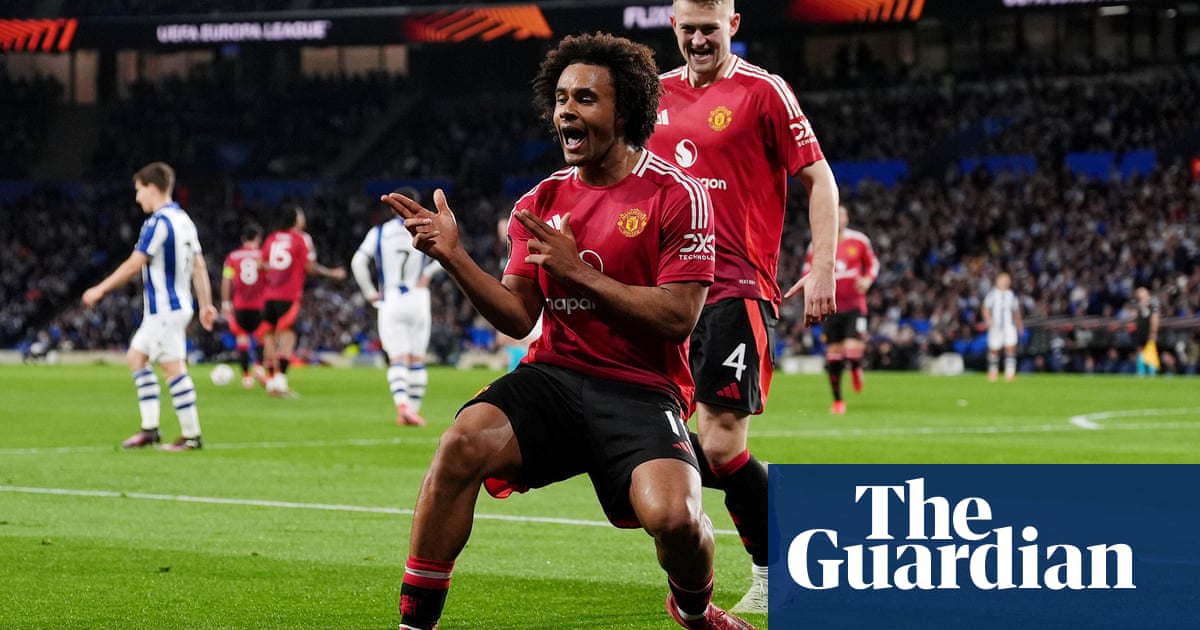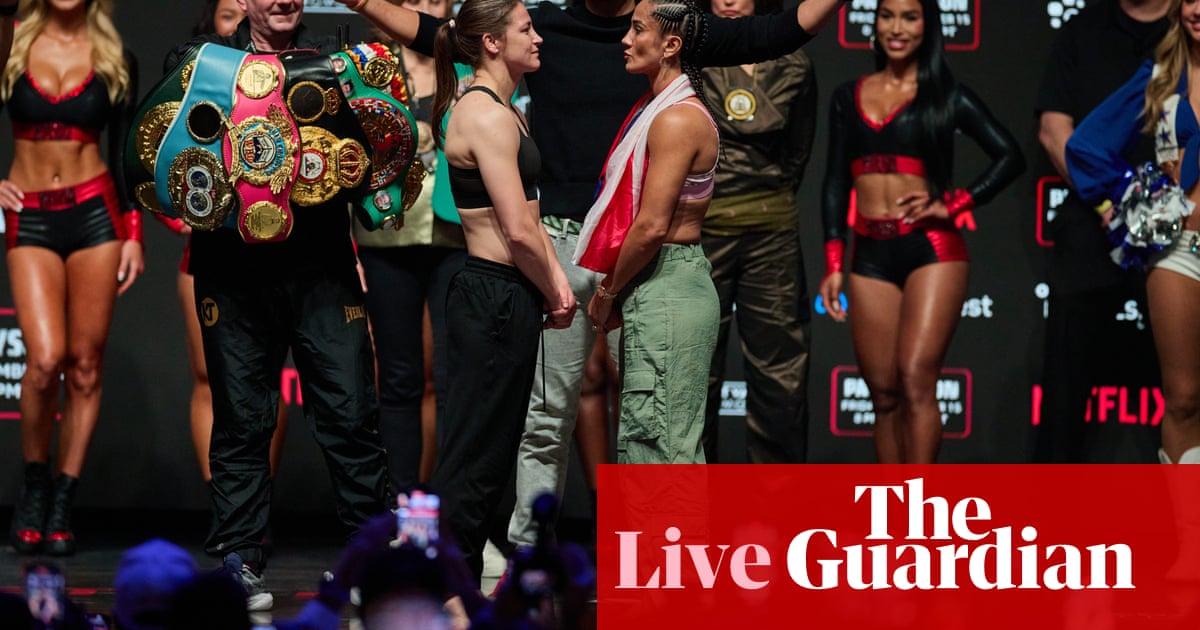When Dana White barreled up to the microphone, at Donald Trump’s request, to say his piece on election night, it represented confirmation of the UFC CEO’s status as one of the key members of the president-elect’s inner circle. But White’s brief speech also signaled his own growing importance as a kind of impresario for a new class of Trump-supporting influencers, podcasters, streamers and wellness bros. “I want to thank the Nelk Boys, Adin Ross, Theo Von, Bussin’ with the Boys, and last but not least, the mighty and powerful Joe Rogan,” White enthused.
With the exception of Rogan, who’s about as close to a household name as the world of podcasting has today, none of these figures would probably be familiar to anyone who observed the election through traditional media or cable TV. Theo Von is a comedian and former reality TV contestant whose podcasts, like those of many of his peers, often extend to several hours; Bussin’ with the Boys is hosted by a pair of NFL players; the Nelk Boys are former college pranksters with a brand of hard seltzer and a taste for casual cruelty; Adin Ross is a streamer who’s been banned multiple times (most recently permanently) from the gaming platform Twitch for hateful conduct. These online “creators” form a network: they all appear on each other’s shows, which often feature far-right streamers like Nick Fuentes and Andrew Tate alongside more mainstream figures of the Maga movement like Tucker Carlson, Ben Shapiro and Elon Musk.
Trump happily sat for lengthy interviews with each of them, often more than once: he appeared on Full Send, the Nelk Boys’ podcast, three times over the course of the campaign. This support was likely key to securing Trump’s seismic victory among young men. At the center of this sprawling alternative media universe sits the UFC supremo, who Trump frequently named as the key connector between the creator economy and his own presidential campaign during his appearances on these podcasts. White must now be considered more than a mere surrogate for Trump: by aligning his own business interests with a particular style of new media built on podcasting, gambling, crypto, and violence, he has become the glue between Maga and the so-called “manosphere”. Trump not only rode a wave of popular support to victory in this election; in a very real sense he also bro’d his way to victory, and White was one of the main orchestrators in securing the testosterone vote.
It’s long been argued – correctly – that UFC represents the sporting arm of the Maga movement. Trump was one of the key early backers of UFC at a time when it appeared the nascent mixed martial arts competition – derided as “human cockfighting”, shunned by the sporting and media establishment, and barred from hosting events in most states throughout the US ––was on the brink of failure: in 2001 he allowed the organization to host two consecutive events at the Trump Taj Mahal in Atlantic City, and a lifelong alliance was forged. Trump himself is now a fixture at UFC events, often staying right until the end of spectacles that can run for five or six hours, and he has used his entrances at arenas hosting UFC cards to signal his enduring strength and support base in the face of adversity: the twice-impeached president’s first public appearance following his conviction on 34 felony counts by a Manhattan jury earlier this year was at UFC 302 in New Jersey. (Trump also used the event to launch his TikTok account.) The relationship between Maga and the UFC is more than simply transactional, however: there’s a real stylistic symbiosis between Trump and White, both of whom see themselves and their constituents as maverick outsiders upending the smug old certainties of politics, sport, and culture. Kid Rock’s rap-rock anthem American Bad Ass (“I’m an American bad ass, watch me kick / You can roll with rock or you can suck my dick”) became the unofficial anthem of Trump’s 2024 campaign. But it first became popular among the Trumpian core as a standard title fight opener at UFC events.

White’s influence extends far beyond the fight cage, however; it stretches into media, politics and the neverending culture wars, making him a kind of cultural czar of the Maga movement. The UFC now regularly brings in more than $1bn in annual revenue, enough to make White, who lives in a $50m mansion in Las Vegas and has vacationed on a $2.8m-a-week yacht, an exceptionally wealthy man. Displays of wealth and luck are key to White’s personal mythos, as they are to other leading figures in the right-aligned grift economy: in September White won big at a blackjack night in Vegas and immediately offered Barstool Sports reporter Robbie Fox $20,000 to pay for Fox’s wedding. “I’m about to be the number one Power Slap reporter in the world,” Fox declared; in Dana-land, the gift and the grift are never far apart. The episode highlighted the central role White (or “Uncle Dana” as Fox later called him in his own post about the gift) now occupies as an orchestrator of disparate elements of the Trump-aligned cultural universe, with its orbit set around long-form male-hosted podcasts, casinos, testosterone-fueled sports like football, boxing, wrestling and mixed martial arts, and bro-heavy media organizations like Barstool. Each of these is a node in a mutually enforcing network built on protein, nutritional supplements, risk and resentment; boosterism is the key to this network’s success, and criticism its greatest enemy.
Power Slap, for those unfamiliar with it, is White’s latest business venture – a face-slapping competition launched in 2022 in which big-jawed men with arms like hams take turns in smacking each other into submission. The clips that Power Slap generates are tailor-made for social media and contemporary “highlights culture” – blood-soaked snackables that act as tributes to both the thrill of violence and the majesty of the mandible. Other new or newish sports are being invented to capitalize on the online public’s insatiable thirst for short-form televisual jolts of excitement – among them SlamBall, a trampoline-enhanced hybrid of basketball, football, hockey and gymnastics, WWE Speed, a short-form wrestling competition hosted on X, and CarJitsu, a car-bound adaptation of jiu jitsu which looks every bit as uncomfortable as it sounds. But none fuses shock value with sheer face-dissolving idiocy into compulsively watchable content quite as effectively as Power Slap.
The point here is not that Power Slap is about to take over the world; that seems unlikely, and internet users were quick to debunk White’s recent claim that Power Slap has more followers than any other sports team on the planet. Rather, it’s to emphasize the degree to which White has understood that brevity, virality and action are the key to winning the war for attention across sport, politics and culture. Many of the leading media properties of the manosphere may produce podcasts that extend to two or three hours, but they’re all consistently mined for their highlights and seams of potential virality: the most memorable media moment of the 2024 presidential campaign was arguably when Theo Von told Trump, “Cocaine will turn you into a damn owl, homie.” White’s aggressive promotion of gambling and crypto – crypto.com is the UFC’s biggest sponsor – adds to the allure of his high-speed, high-shock model of culture and entertainment; to his fans he embodies an against-the-odds, chips-on-the-table spirit of risk-taking and defiance that’s of a piece with Trump’s fist pump and “Fight! Fight! Fight!”, Conor McGregor’s neverending comebacks, and Musk’s moonshot bids to populate Mars and father every child on earth. Trump is “so resilient”, Theo Von told Rogan recently, that “at a certain point you’re just like, I gotta bet on this dog.” Adin Ross did this literally, putting $1m on on a Trump victory. But no one has bet more powerfully and meaningfully on Trump than UFC’s heaviest heavy. And no one has been as effective as White in harnessing the energy of what critic Ted Gioia has called “dopamine culture” – an energy built on provocation, gambling, the short grab, the viral clip – to serve a political and cultural agenda.
White and the Maga right are not alone in mobilizing short-form video for campaigning purposes, of course; all those clips of Harris dancing and laughing, a corollary to the slightly desperate “Kamala is brat” energy of the Democratic candidate’s first few weeks on the campaign trail, followed the same social media template. But the grifters and gabsters of the MMA-aligned right, with White as their godfather, seem far more adept at exploiting the messiness and velocity of clips culture than risk-averse liberals, who remain in thrall to legacy media and apparently still see conventional celebrity endorsements as a meaningful way to pull in the youth vote. In entertainment terms, the liberal order, like the Democratic Party that has come to embody it, represents the last gasp of the old studio system. The Trump right’s infotainment-addiction industry, with its phalanx of brawlers, talkers, gamblers, grifters, vloggers and floggers, feels increasingly like the future. And the UFC boss is now its leader. Trump may lead the party and soon again take control of the country, but Dana White is the American right’s instigator-in-chief.

.png) 3 months ago
29
3 months ago
29




